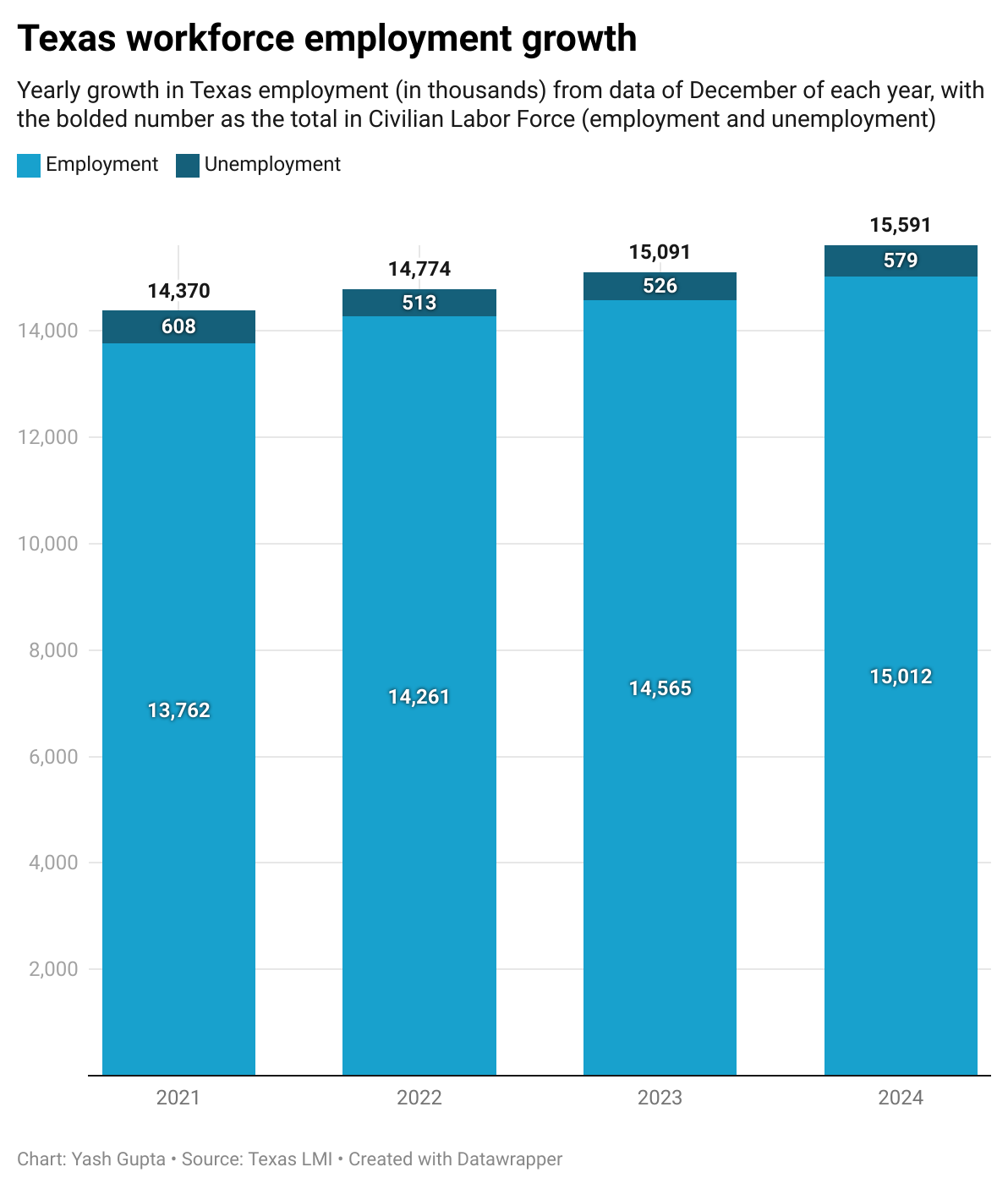Texas added the most new jobs in the nation last year, creating 284,200 nonfarm jobs in the state, according to data released by the U.S. Bureau of Labor Statistics on Jan. 28.
Texas also took the lead in 2023 with 369,600 new nonfarm jobs. Last year, Texas recorded the largest number of Texans working in the state’s history at roughly 95.8%, or 14,922,200 out of the 15,575,900 eligible to work in Texas, according to data released by the Texas Workforce Commission in December 2024.
“Everything is bigger in Texas, and that includes creating good-paying jobs,” Gov. Greg Abbott said in a Jan. 24 media release. “As we break record after record for total jobs, the number of Texans working and our labor force, we begin the new year as America’s job creator. Jobs are growing here, businesses are growing here (and) the future is growing here.”
Along with job creation, the Texas unemployment rate has gone up slightly from 3.9% to 4.2% over the past year, according to data from the Texas Workforce Commission.
“Having more jobs available in Texas does give an edge to UT jobseekers, but of course, you’re competing with talented people from all over the country who want to move here too,” Wiseman said.
Despite Texas adding the most jobs in the nation last year, the job market remains competitive for UT students, economics professor Thomas Wiseman wrote in an email.
“The supply of jobs has gone up, but the demand (the number of workers living in Texas) has gone up too, as both businesses and people move here,” Wiseman said.
Sociology senior Hannah Odewale, who hopes to pursue a career in the mental health sector, said competitiveness in the job search seems to depend on career focus.
“Now that I’m about to graduate, I’ve definitely ventured my search outside of Texas, and I do feel like I’ve seen a lot more (opportunities) in other states, at least for the jobs that I’m looking towards,” Odewale said.
Odewale said she found it easier to qualify for more jobs as she’s gotten closer to graduating and has grown her job experience and skills in interviewing. She said the UT career fairs were educational and helpful, but she hopes to see more representation at the fairs from job sectors such as mental health and education.
“Looking to the future, it’s always difficult to predict macroeconomic forces that will affect patterns of job growth,” Wiseman said in an email. “Historically, though, a college degree from a top university like UT has consistently been a major advantage.”











